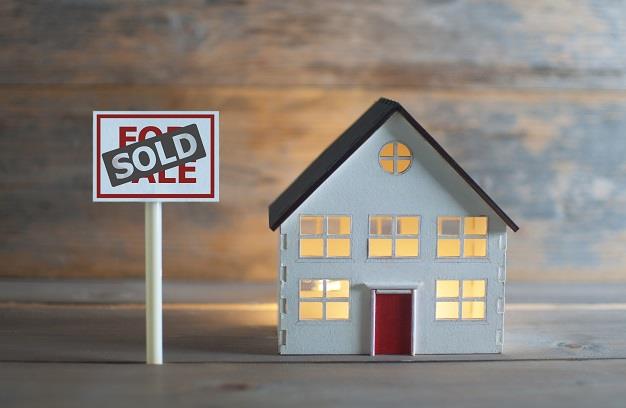More South Africans are selling due to financial pressure, with the impact of the low-interest rate expected to diminish and forecast job cuts set to dampen demand.

And while the lower end of the property market has seen robust growth, a combination of unemployment and a possible supply glut could mean further house price pressures, across the spectrum.
The average annual house price growth reached 2.1% in 2020, down from 3.5% in the previous year, with much of the growth seen in the lower end of the market. FNB, however, expects house prices could fall by as much as 6% this year.
FNB economist Siphamandla Mkhwanazi says the pandemic had a profound impact on global output in 2020. "Many economies experienced sharp recessions, unemployment spiked, and incomes stagnated. Yet, housing markets in major economies remained relatively unimpacted, showing robust growth - South Africa included".
READ: SARB rate decision a 'missed opportunity', but first-time buyers can still score
FNB data shows freehold properties, which have become more popular as more people work from home, continue to outperform sectional title units. The average value of freehold properties grew by 3.5% y/y in 4Q20, versus 1.3% y/y for sectional title units. While the Reserve Bank has kept interest rates unchanged after its first meeting for 2021 citing it had done more than enough to stem inflation, the Monetary Policy Council has indicated that rate hikes can be expected later in the year.
"We saw robust growth in buying activity and house prices continued climbing. This happened despite a rising number of infections and significantly weaker labour markets."
‘Improved affordability adds to rising rental vacancies’
Mkhwanazi says despite the continued uptick in home-buying activity, lenders remain cautious. "Approval rates were lower in 2020 compared to 2019. Activity is propelled by lower interest rates, attractive market pricing, lower transfer duties and the changing housing needs due to the pandemic."
Mkhwanazi adds that the improved affordability explains another significant trend within the property industry that has seen rising vacancy rates and subdued rental escalations, as landlords struggle to hold on to their good quality tenants.
"Another explanation is that job losses were more prevalent in low-paying occupations and for those employed on a non-permanent basis, who would generally not afford to buy property. Thus, the impact of the pandemic is more visible on the rental market than on the home-buying market."
‘Job losses to dampen demand in the law of diminishing returns’
Job losses and how the labour market evolves will be a key indicator for the property market in 2021, he says. “Data from Stats SA shows that the economy shed approximately 1m formal jobs between 4Q19 and 3Q20; including the Agricultural sector, this figure is closer to 1.1m. This is in comparison with our forecast of 1.2m job losses due to the pandemic.
Mkhwanazi suggests that lower interest rates “will hardly be enough” to offset the demand-dampening effect of these expected job cuts.
“On the supply side, we are already seeing rising incidents of property disposals due to financial pressure. Sales in execution are on the rise. Admittedly, these have not been as bad as in 2008. Among other factors, this is due to support from lenders (payment holidays) and the aggressive interest rate cuts that ameliorated financial pressures. These measures are coming to an end, and the effect is waning.
READ: Landlords and tenants under pressure as vacancies rise, with Gauteng hardest hit
“Furthermore, shrinking demand and rising vacancy rates in the rental market present a threat to housing stock for sale: more landlords may elect to sell their properties (supply impulse). Anecdotal evidence suggests that even corporates (mainly SMMEs) are disposing of their assets, to alleviate cash flow and balance sheet pressures. Involuntary sales are also prevalent, as can be seen by the high number of company liquidations in recent months.
“A combination of these could culminate in a supply glut at a time when demand has dried up (due to income pressures and the diminished effect of low-interest rates). This could dislocate market equilibrium and push the market deeper into excess supply.
With property disposals due to financial pressure becoming the dominant reason for property disposal in SA, price pressures experienced in the top end could now filter down to the more affordable segments, adds Mkhwanazi.
“As such, we expect house prices to decline by around 2.2% this year, troughing at around 6% in 2Q21. This assumes no further support to property owners by lenders (e.g., payment holidays or similar initiatives). It also does not take into account the impact of government’s economic reconstruction plan. Should we see some movement on these, we could revise our expectations higher.”







